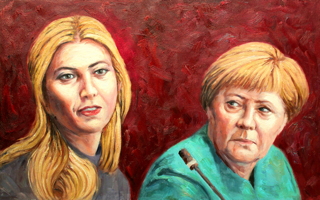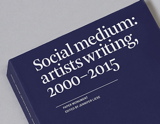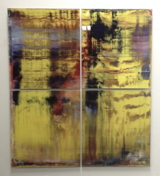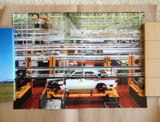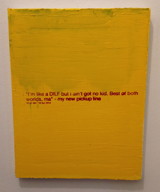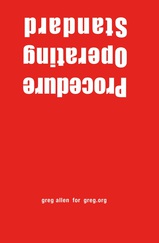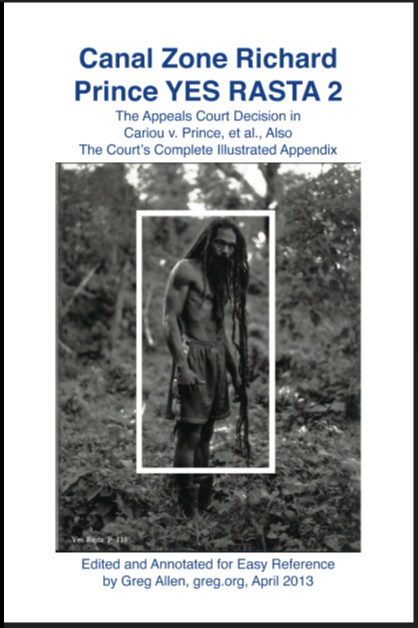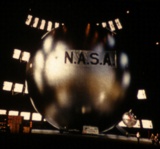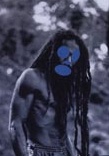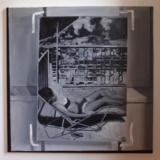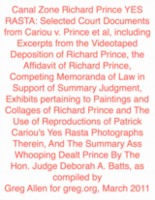WNYC is my media default setting. I know several artists who live by WNYC; they have it playing in their studios all day. If they still do this, I don't know; but I find myself turning off wall-to-wall war discussion more frequently, whether out of distraction, exhaustion, or resignation.
Oddly, that's just the opposite of what I did during/after September 11th. For days, weeks, WNYC was this incredible lifeline, an important source of solace, community; I almost never turned it off. Divisions over the war run deep, and positions seem to be calcifying. With the microsegmentation/balkanization of media sources, war coverage itself has become a point of contention. Rather than bringing people together, media--even the media I generally agree with--ends up reinforcing the differences.
 For more than a week now, WNYC has been soliciting art from its listeners, by its listeners, art made in response to the war. Submissions to date number nearly 100, and can be seen online. It's a sobering collection, in ways I don't think are intentional.
For more than a week now, WNYC has been soliciting art from its listeners, by its listeners, art made in response to the war. Submissions to date number nearly 100, and can be seen online. It's a sobering collection, in ways I don't think are intentional.
It's protest art, almost without exception. (I remember host Brian Lehrer's intermittent pleas for art from supporters of the war/troops/president, which didn't materialize, apparently.) The exhibit reveals not just overarching bitterness, but an almost pathetic sense of powerlessness. In the tone and content, the raw anger, and in some cases, the sheer obviousness, there's a subtext of impotent rage. Art, at least this art, seems like the resort of people who tried other means of protest and found them wanting.
In her Oscar speech, Nicole Kidman weakly reassured us that "art is important." It's certainly important to its creators. And yeah, it's important in the whole "what it means to be human" sense. But the absence of pro-war art has less to do with WNYC's political demographics, and everything to do with deep conservative suspicion of the role of "art" itself. The administration in power/culture in ascendance right now views art, not patriotism, as the last refuge of the scoundrel. And that unsettles me almost as much as the threat of perpetual war.

